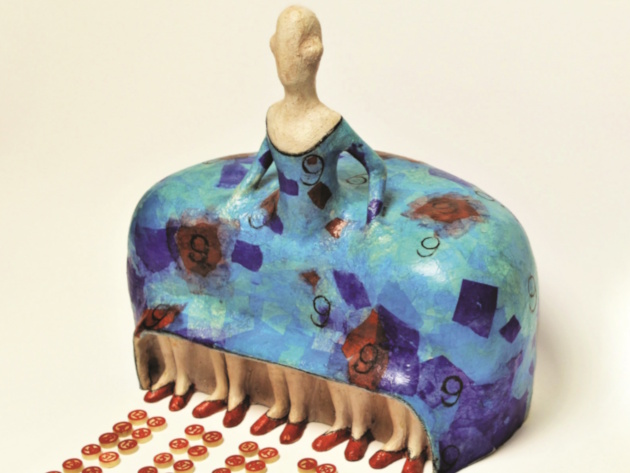
Daughter of Empress Maria Theresa of Austria and sister of Marie Antoinette, given in marriage to Ferdinand IV of Naples to seal an alliance with the Bourbons of Spain, Maria Carolina of Habsburg-Lorraine reigned de facto in Naples, with ups and downs, from 1768 until 1806, when she was deposed by Napoleonic forces. The relations between Maria Carolina, her husband Ferdinand and the Kingdom of Naples are the thread running through the exhibition at the Napoleonic Museum: the sculptures, engravings and multimedia installations are the work of Gianluca Esposito, an artist who has been pursuing research work centered on the two sovereigns for nearly a decade.
This is not a historical exhibition, although it fits perfectly into the museum dedicated to the Napoleonic epic. At the center of the exhibition is the poetic text written by Esposito himself, entitled “La canzone di Carolina - Carolina’s Song”: addressing the sovereign, the genius loci of the city describes Naples as a magical place where reality and lies merge and time is turned upside down, “what is after does not always follow what is before”. The text is illustrated in the exhibition through linocut engravings that make up a giant site-specific artist’s book over 5 meters long.
A video installation with the engravings animated thanks to the teachers and students of the Roberto Rossellini Cine-TV Institute poetically guides visitors through the exhibition. The sculptures scattered among the museum’s precious period furnishings and objects echo in even grotesque ways the mantel clocks in use in the 18th century, in which Carolina is transformed from time to time into a train, a two-headed monster, a centipede symbolic of the thousand possibilities never realized. The itinerary closes with a sumptuous table set for two in which dishes and tableware take on an autonomous life and become bizarre creatures, in which terracotta coated in white and gold pretends, unsuccessfully, to be Capodimonte porcelain.
Each work is complemented by multimedia content through which it is possible to listen to the artist’s voice recounting its genesis and meaning. The purpose is not so much to describe a historical era as to explore the imperfection of human relationships often conditioned by prejudice and misunderstanding, although from this complexity extraordinary fruits are produced as is precisely the city of Naples we know today.
Informations
Dal 17 ottobre al 12 gennaio 2025
Da martedì a domenica ore 10.00-18.00 (ultimo ingresso ore 17.30).
Chiuso il lunedì
 Condividi
Condividi











































